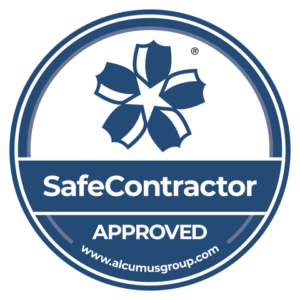The safety and welfare of others in your workplace should be maintained and controlled based on policies and procedures which outline a working environment. However, this is not always the case when another member of staff demonstrates a form of anger and aggression towards
another colleague.
The aim of this training is to promote safe practice, which particularly focusses on reducing the risks associated with challenging behaviour in the form of aggression, violence and harassment. This qualification also aims to ensure that violence and aggression is managed in line with the organisations core values and best practice guidelines and that any practices are employed in a transparent, ethical and lawful manner.
This course is NOT available online via Omni eLearning. This is a ‘practical classroom qualification’ completed with a qualified instructor. All instructors teaching this course are highly trained serving/retired Police Officers – who have been certified as maintaining their skills up-to-date.
The Prevention and Management of Violence and Aggression (VTQ) – PMVA certificate is valid for three years. We do highly recommend completing the online Conflict Management course via the Omni eLearning page which will serve as a good refresher in-between those 3 years.
Please note that learners undertaking this qualification have the option to choose to take a regulated qualification (at additional cost) should you industry / employer require this.
Course Structure:
The safety and welfare of others in your workplace should be maintained and controlled based on policies and procedures which outline a working environment. However, this is not always the case when another member of staff demonstrates a form of anger and aggression towards
another colleague.
The aim of this training is to promote safe practice, which particularly focusses on reducing the risks associated with challenging behaviour in the form of aggression, violence and harassment. This qualification also aims to ensure that violence and aggression is managed in line with the organisations core values and best practice guidelines and that any practices are employed in a transparent, ethical and lawful manner.
This course is NOT available online via Omni eLearning. This is a ‘practical classroom qualification’ completed with a qualified instructor. All instructors teaching this course are highly trained serving/retired Police Officers – who have been certified as maintaining their skills up-to-date.
The Prevention and Management of Violence and Aggression (VTQ) – PMVA certificate is valid for three years. We do highly recommend completing the online Conflict Management course via the Omni eLearning page which will serve as a good refresher in-between those 3 years.
Please note that learners undertaking this qualification have the option to choose to take a regulated qualification (at additional cost) should you industry / employer require this.
Course Content:
Understanding Positive Behavioural Support (PBS)
Define what Positive Behavioural Support is and its relevance to Prevention and Management of
Violence and Aggression
Understand types of strategies and their effectiveness
Identify strategies that can be used to solve problems
Be able to understand the Assault Cycle, causes and triggers
Identify human resources to emotional to threatening situations
Understand cause & trigger phase, acceleration, situation, recuperation and post situation phase
Identify factors that can inhibit an angry response in others
List positive support mechanisms
Be able to define : de-escalation, distraction, diversion, disengagement and diffusion
Be able to communicate positively
Know how to communicate positively
State the importance and need to communicate positively
Understand how body language, tone of voice and words can affect a reaction
Identify how to use non-verbal communication in emotive situations
Identify how to overcome communication barriers in emotive situations
Identify ways of diffusing emotive conflict situations
State the importance of providing exit routes and space when dealing with an angry person
Be able to manage the acceleration, situational and recuperation phase (Escalation Phase)
Understand the acceleration phase as explained by Kaplan & Wheeler 1983
Understand the situational phase as explained by Kaplan & Wheeler 1983
Understand the recuperation phase as explained by Kaplan & Wheeler 1983
Understand the law and risks of physical intervention when working with young people and vulnerable adults (Adults at Risk)
Understand the regulations that relate to the law
Understand the difference between restrictive and non-restrictive physical intervention
Understand the law relating to disengagement and physical intervention when working with young
people and vulnerable adults
Know the risks factors associated with physical intervention
Understand the key principles of disengagement and physical intervention as part of an overall strategy for managing challenging behaviour
Understand the key principles of disengagement and physical intervention as part of an overall
strategy for managing challenging behaviour
Be able to use disengagement and non-restrictive intervention methods.
Demonstrate correct communicative and practical techniques





